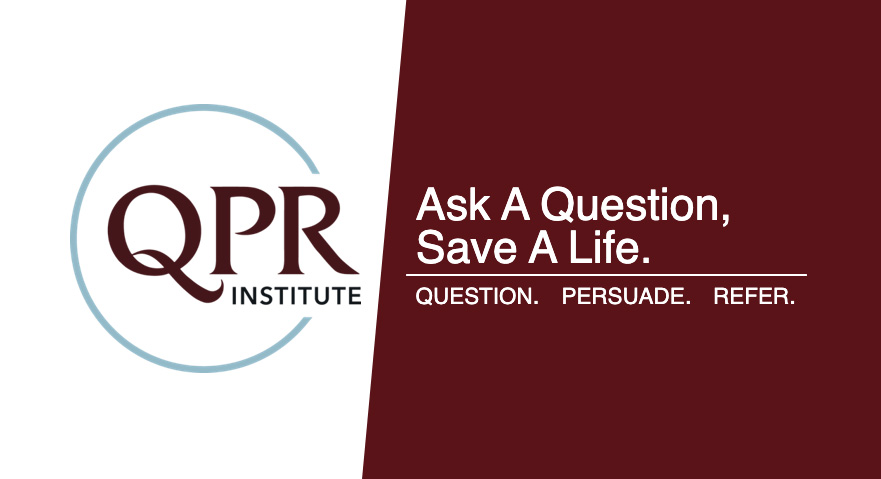The mission of QPR is to save lives and reduce suicidal behaviors by providing innovative, practical and proven suicide prevention training. QPR stands for Question, Persuade, and Refer – the 3 simple steps anyone can learn to help save a life from suicide.
Just as people trained in CPR and abdominal thrusts help save thousands of lives each year, people trained in QPR learn how to recognize the warning signs of a suicide crisis and how to question, persuade, and refer someone to help. Each year thousands of Americans are saying “Yes” to saving the life of a friend, colleague, sibling, or neighbor.
According to the Surgeon General’s National Strategy for Suicide Prevention (2001), a gatekeeper is someone able to recognize a crisis and the warning signs that someone may be contemplating suicide.
Gatekeepers can be anyone, but include parents, friends, neighbors, teachers, students, ministers, doctors, nurses, coworkers, police officers, advisors, caseworkers, firefighters, and many others who are strategically positioned to recognize and refer someone at risk of suicide. In QPR the general public is educated about the known warning signs of a suicide crisis: expressions of hopelessness, depression, giving away prized possessions, talking of suicide, securing lethal means, and then taught how to respond.
As a QPR-trained Gatekeeper you will learn to:
- Recognize the warning signs of suicide
- Know how to offer hope
- Know how to get help and save a life
NRCI offers in person and virtual QPR education sessions. Sessions are 1.5-2hours and can be adapted to meet the needs of your specific population, group or organization. CEUs are available. For more information or to schedule a session, please contact Tracy Levine, tlevine@thechicagoschool.edu.
“This was better, more compassionate, and detailed webinar than those that I have attended for clinicians.”
“This was a great training that gave ways to approach this topic with friends, family, or others suffering from thoughts of suicide.”
“I feel exponentially more comfortable and knowledgeable about suicide and suicide prevention.”


